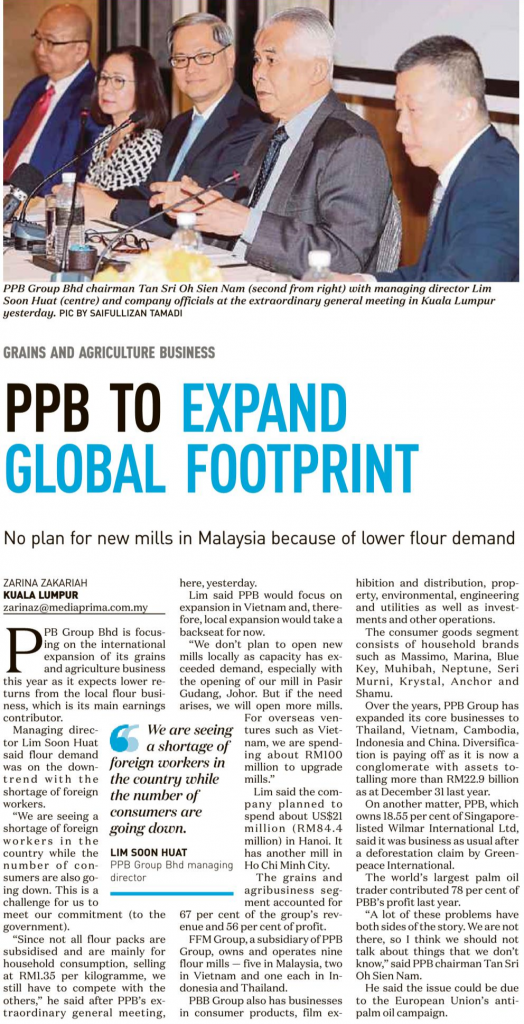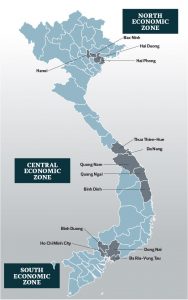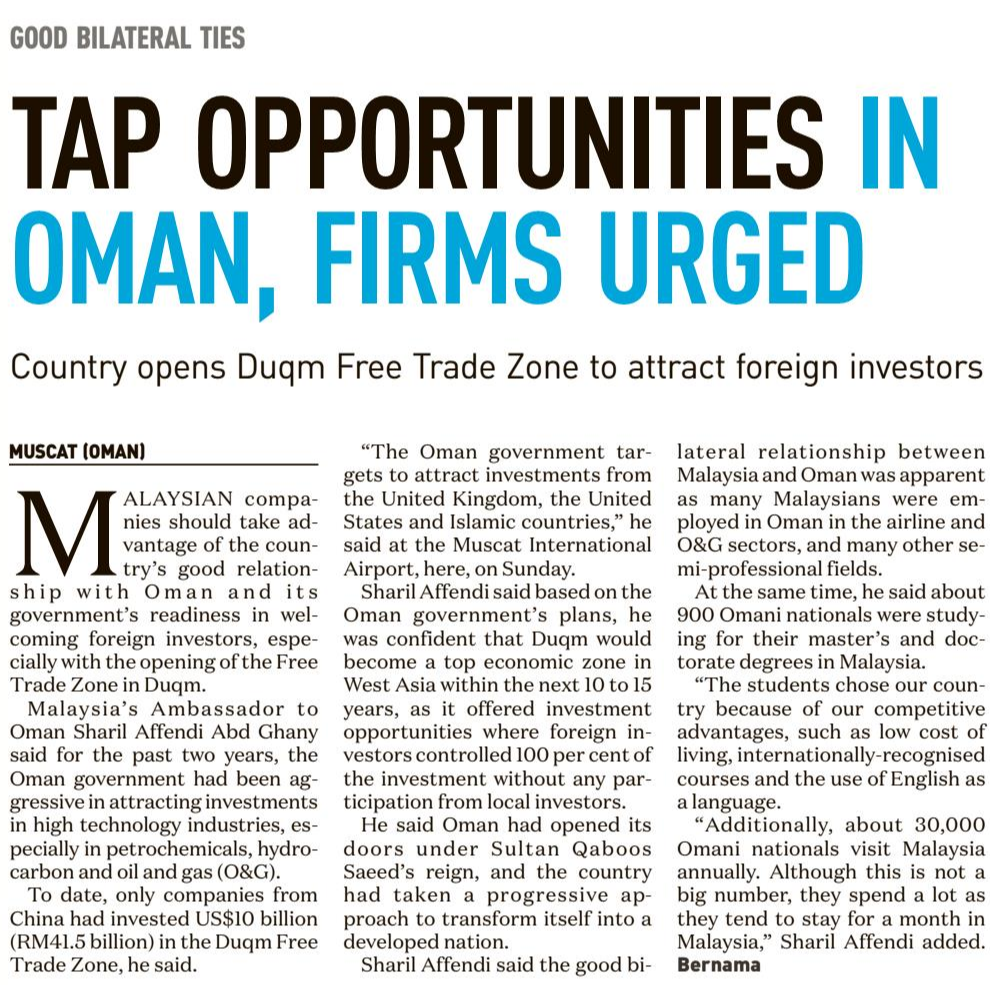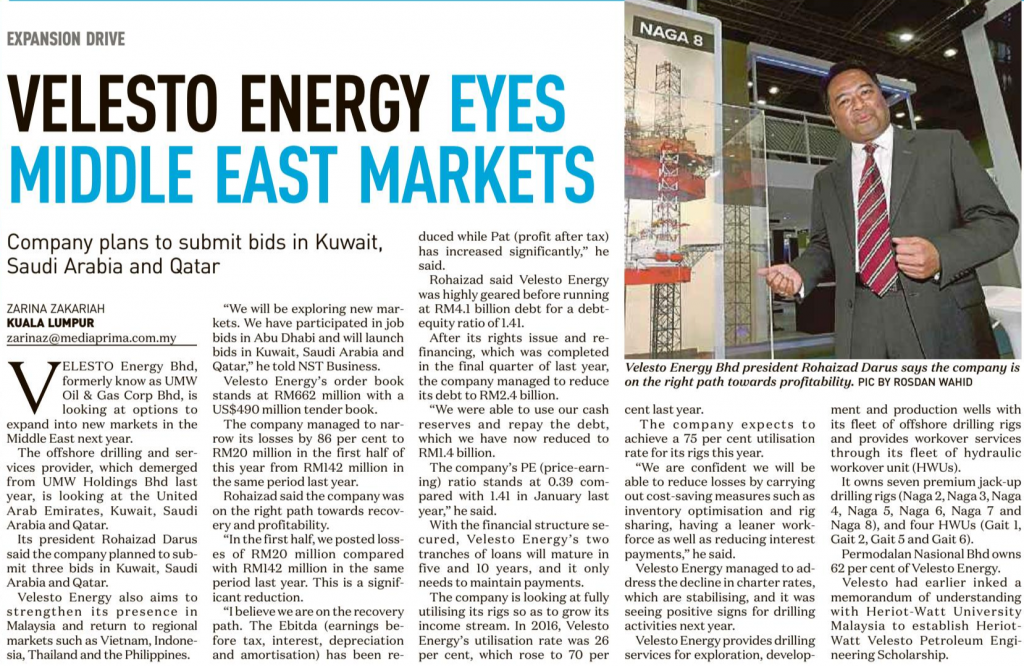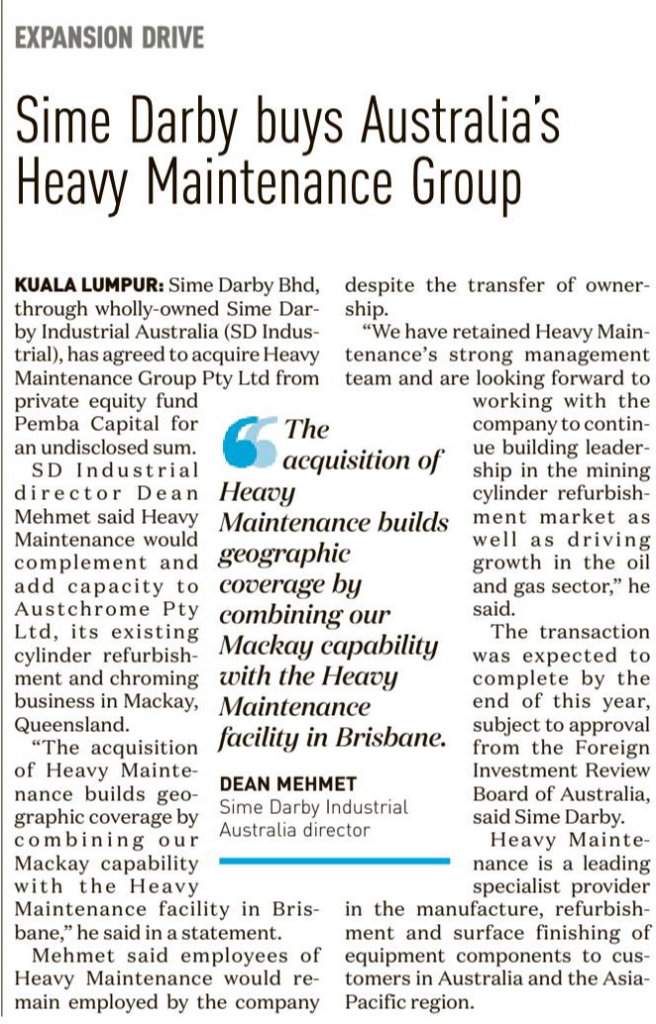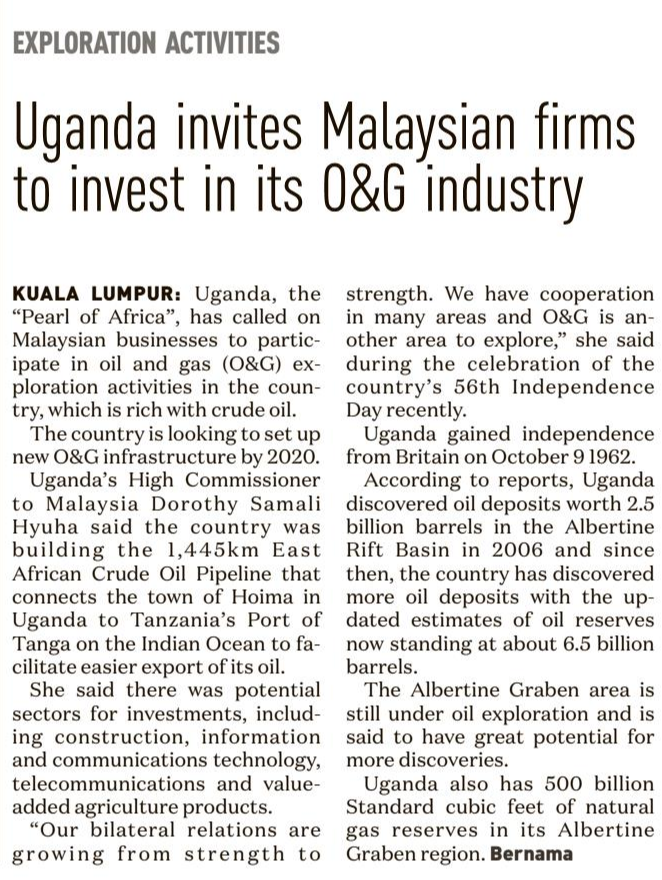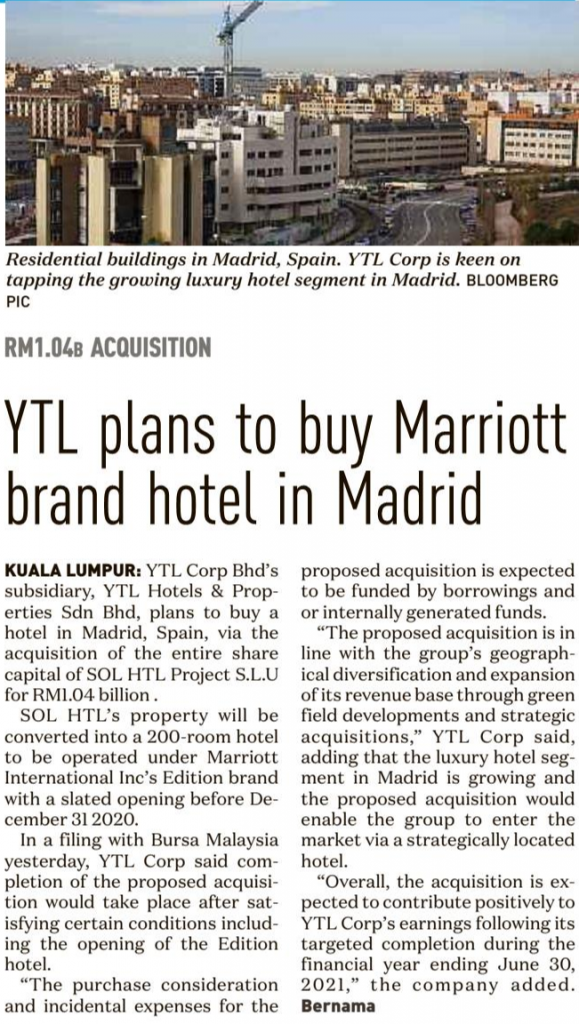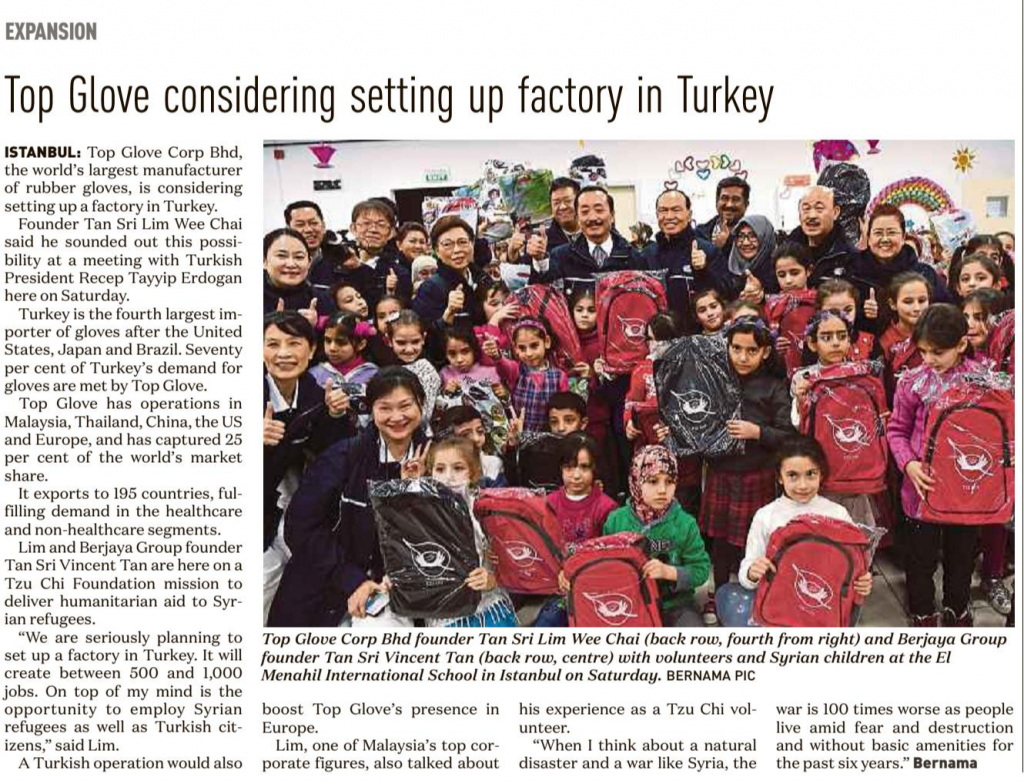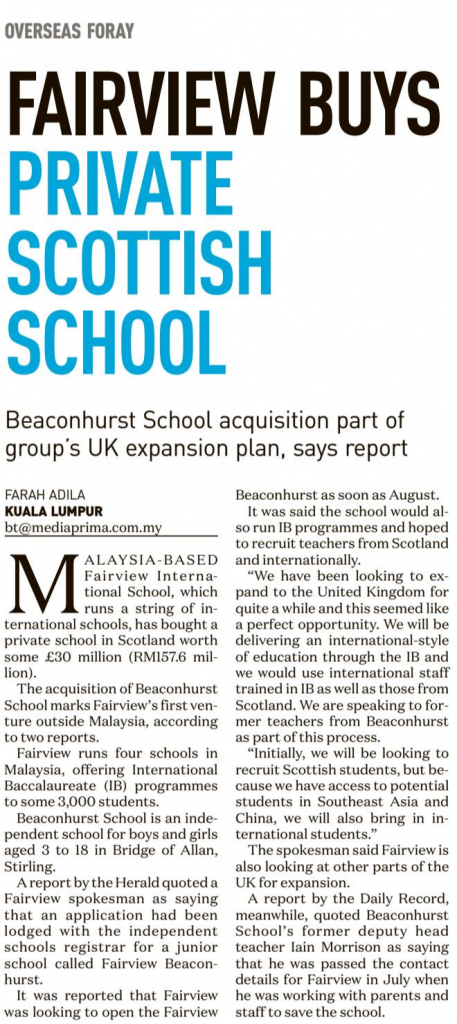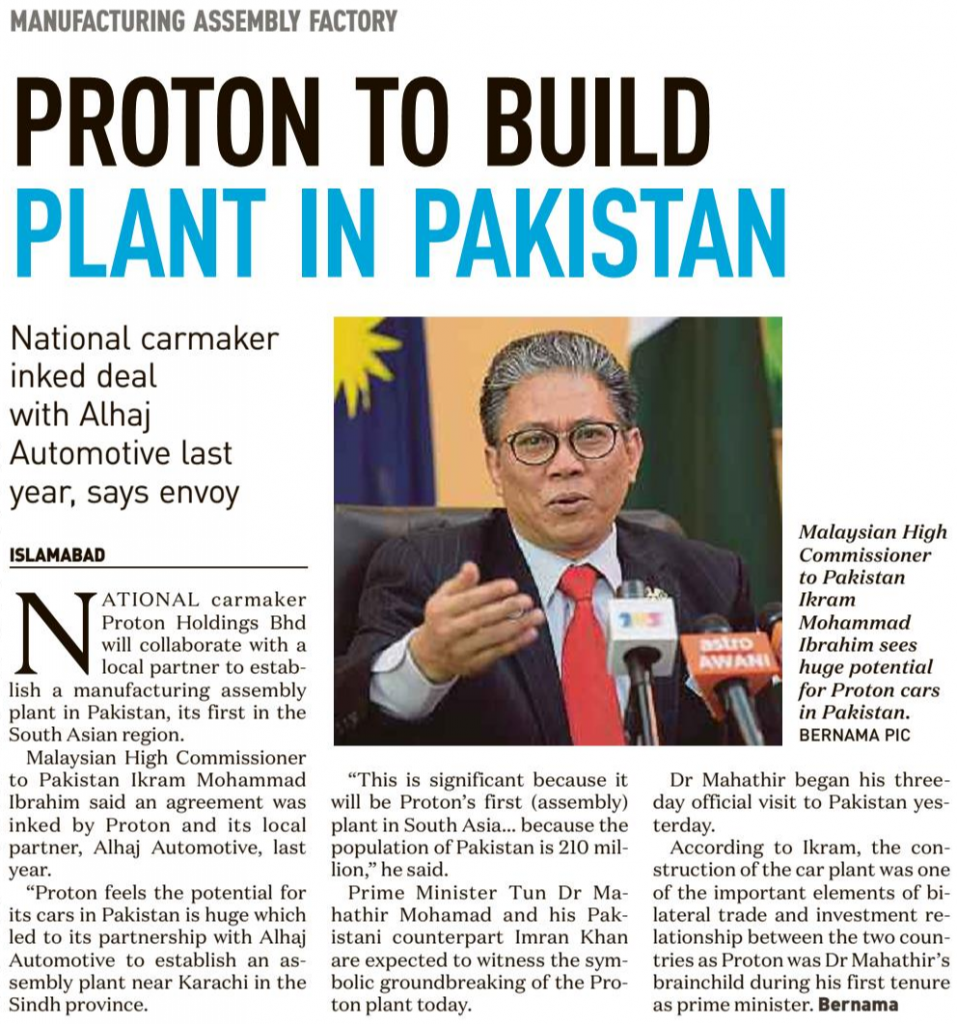Oriental Holdings Bhd’s fourth oil mill, to be built at a cost of RM156.1mil, in Sumatra, Indonesia will start operations in 2019.
In its annual report, the group said the oil mill would meet the projected output of fresh fruit bunch (FFB) from the group’s young trees in south Sumatra from 2020 to 2022.
Preparations are underway for the construction of the oil mill, the first in south Sumatra.
“The total capital expenditure, to be incurred for new planting, the construction of offices and the fourth oil mill, is expected to reach RM156.1mil,” according to the annual report.
The report added that moving forward, Oriental Holdings’ strategy for the year 2018 was to replant 239ha.
“As for new planting activities in Indonesia, we have planted 9,350ha to date and target to plant 1,000ha to 2,000ha each year over the next two years. All the replanting activities will be carried out in a sustainable manner and in accordance with environmental-friendly, zero-burning policy,” the report added.
Oriental Holdings expected FFB production to contribute positively in 2018.
The addition of newly-mature areas, the progress of existing mature areas into higher yielding brackets will be the growth drivers for the group’s plantation division in Indonesia, according to the report.
“As of Dec 31, 2017, the group’s plantation land bank concession stands at 95,516ha, of which 39,082ha have been planted with oil palm trees.
“A total of 90,551ha are in Indonesia (Pulau Bangka and South Sumatra) while the remaining 4,965ha are located in Pahang and Negri Sembilan.”
The division currently has a mature area of 31,190ha, the report said.
In Indonesia, the group has three palm oil mills with a combined operating capacity of 240 tonnes per hour, processing its own crops as well as crops purchased from smallholders, FFB traders and other third party estates.
The total FFB processed by its three mills was 529,483 tonnes in 2017, an increase of 12.8% compared with 469,568 tonnes in 2016.
On its automotive business, the annual report said Honda Malaysia is optimistic about leading the nation’s automotive industry in 2018 with a target of 109,000 combined sales units with the introduction of the HRV facelift and Odyssey facelift.
“Ideally, this would translate to a market share of 18% against the projected 2018 total industry volume of 600,000 units.
“To further enhance market positioning and our portfolio’s attractiveness to customers, the management will also focus on expanding the reach of its sales and aftersales service networks and improving overall service quality levels offered, to support the heightening demand,” the report said.
It added that over the past year, the group have been continuously expanding and upgrading showrooms and service centres.
“We have also strengthened efforts to boost our presence in Sabah and Sarawak.
“In addition, plans are being made to upgrade the Puchong, Selayang, Ipoh and Sabah outlets from 3S to 4S centres by including body and paint services,” the report says.
A gloomy outlook for the automobile market is expected in 2018 with the phenomenon likely to persist throughout the year, according to the report.
The group’s automotive division involved the distribution and retailing of Honda cars and spare parts, serving as the exclusive distributor of Honda cars in Singapore and Brunei.
On its hospitality business, the report said the overall outlook for the leisure and hospitality industry is expected to remain highly competitive amid slower economic conditions in both domestic and overseas markets.
“Looking ahead, we aim to drive revenues by investing in a more
user-friendly website to attract guests and exploring other income streams,
including ways to increase guests’ consumption of food and beverage.
“We also aim to increase operational efficiencies by implementing cost saving measures, reducing wastage and improving staff efficiency levels.
“Besides planned major refurbishments, about 3%-4% of revenue per year would be reserved for capital expenditure on replacement and repair of furniture, fittings and equipment, to ensure the properties remain in optimum condition at all times,” the report added.
Source: The Star
Oriental plans to operate its new oil mill next year
Content Type:
Duration:


